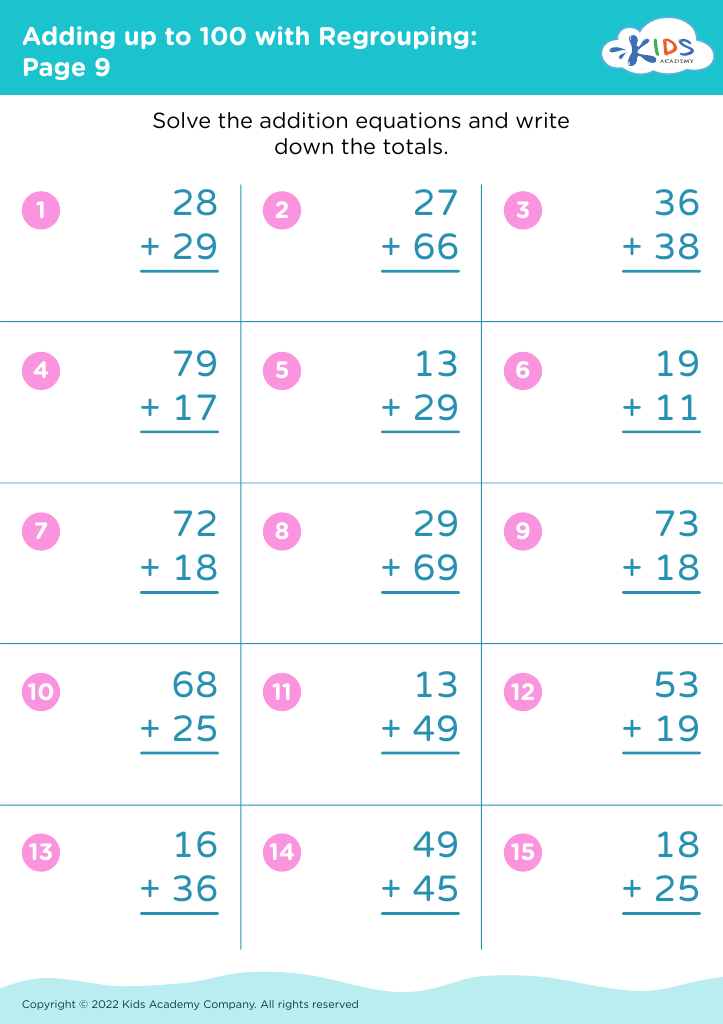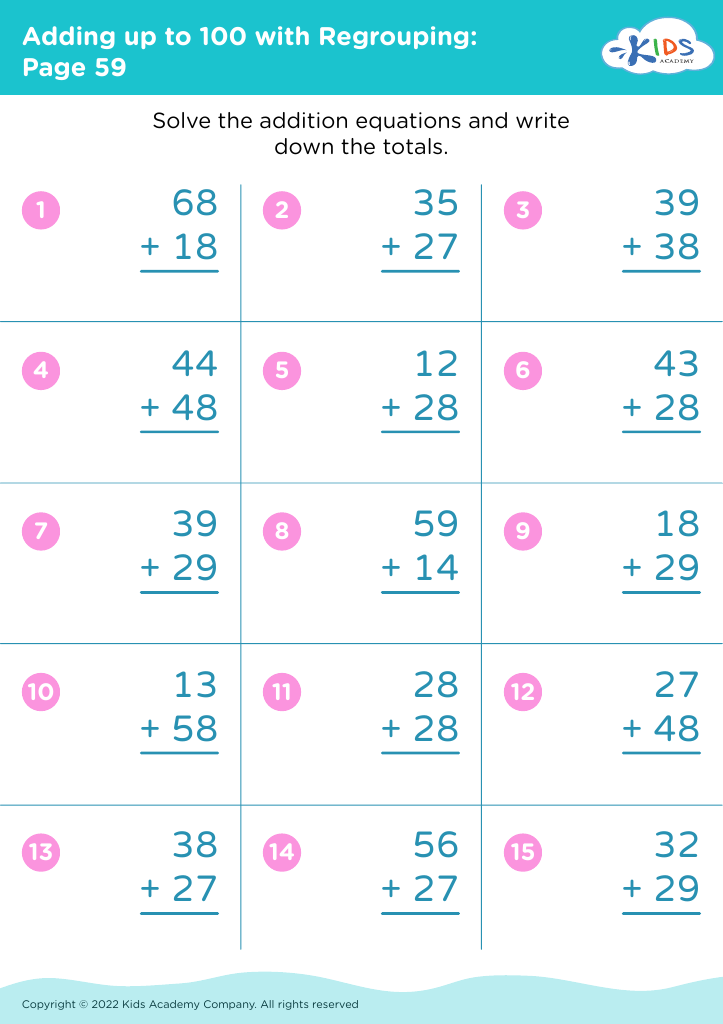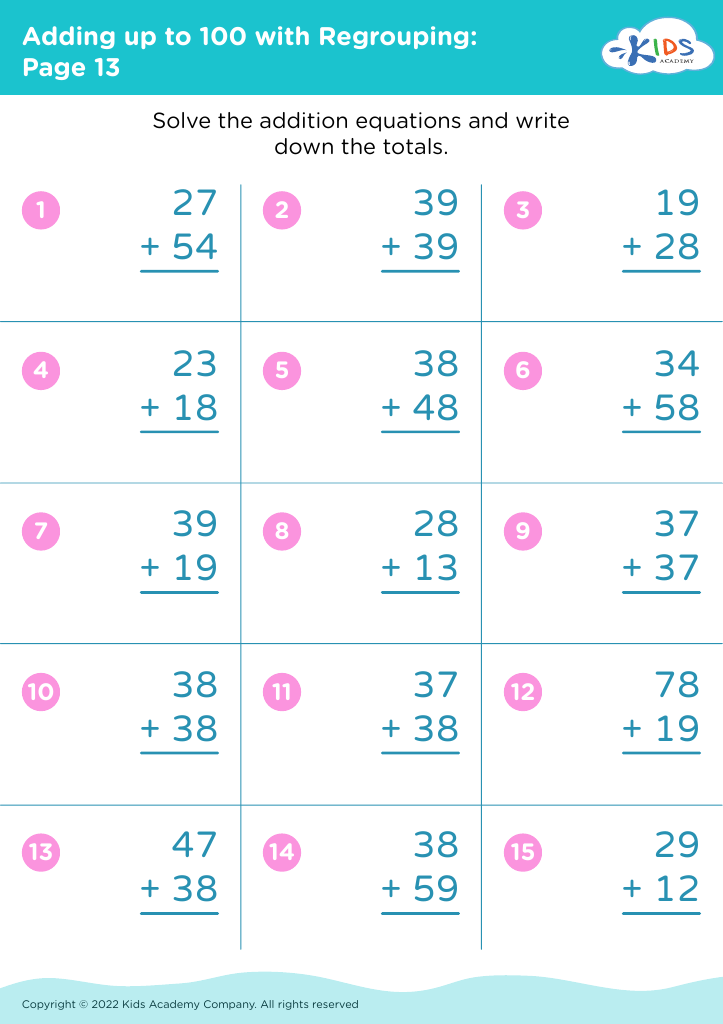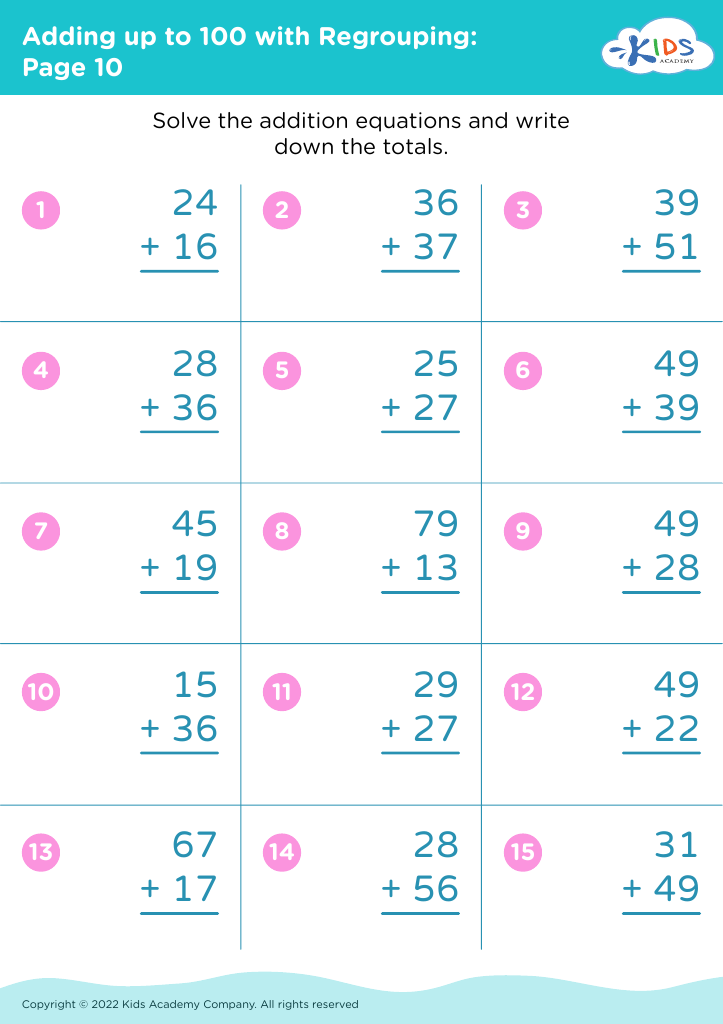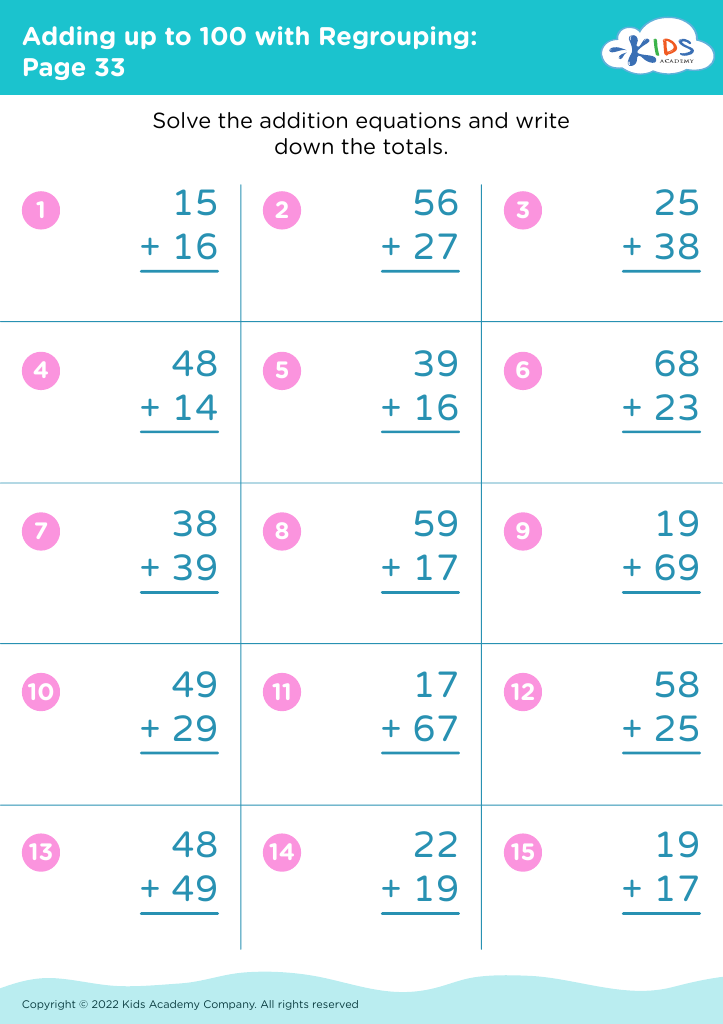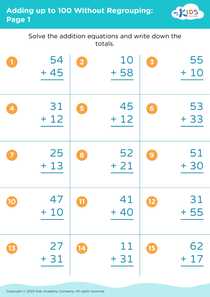Understanding fractions Grade 2 Adding up to 100 with Regrouping Worksheets
16 filtered results
-
From - To
Welcome to our "Understanding Fractions for Grade 2: Adding Up to 100 with Regrouping Worksheets." Our engaging and interactive worksheets are designed to help young learners grasp the concept of fractions while mastering the addition of two-digit numbers that require regrouping. Each worksheet encourages students to visualize and manipulate numbers, fostering a deeper understanding of mathematical relationships. With fun illustrations and various exercises, children will gain confidence as they practice adding fractions and two-digit numbers up to 100. Explore our resources to build essential math skills while keeping your students motivated and excited about learning!
Understanding fractions, particularly in the context of adding up to 100 with regrouping, is crucial for students in Grade 2 as it lays the groundwork for more advanced mathematical concepts. Parents and teachers should care about this topic because it not only enhances numerical literacy but also develops critical thinking and problem-solving skills. Fractions help students conceptualize parts of a whole, an important life skill in various situations, from sharing food to gauging portions.
Learning to add fractions with regrouping introduces students to the idea of totals exceeding unity, enhancing their understanding of place value and the base-10 number system. This skill empowers them to approach larger numbers and complex problems more comfortably as they progress through earlier grades.
Additionally, having a strong command of fractions fosters confidence in mathematical abilities, which can influence overall academic performance and a positive attitude toward learning. Engaging parents in their children’s understanding of fractions helps create a supportive learning environment at home, reinforcing concepts taught in school. By prioritizing this foundational knowledge, parents and teachers prepare students not only for future math challenges but also for everyday decision-making related to measurements, cooking, and budgeting.
